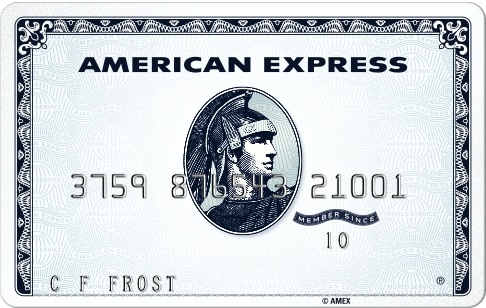Dear Control Your Cash:
Hi, my name is Kari (with a “k”!) J I’m a stay-at-home mom (most important job in the world LOL!) and part-time volunteer with 3 sometimes bratty kids (LOL!) I’ve been paying off my student loans for my sociology degree for 4 years now, and they’re down to $5,347 (at 6.8%). I’ve also got $13,349 in credit card balances, at 14.29% after we did a balance transfer from a 19.9% card (pretty smart, huh?) We also owe $18,348 on our car, which we bought with 0% financing over 60 months. Anyhow, my husband and I were watching Dave Ramsey and he said we should pay off our smallest debt first, then the next biggest one, and so on. He calls this the debt snowball. He seems so nice and helpful on TV, what do you think?
Sincerely,
Kari in Corpus Christi
Dear Kari:
Thanks for the clarification on how to spell your name, in case we get the exact same email from someone who spells it with a “c”.
I’m sure Dave Ramsey is pleasant and forthright. However, the man’s mathematical prowess is shaky at best. One thing we preach here ad nauseam is look at each transaction from the other party’s (or parties’) perspective. Let’s say all those loans were with the same lender. If that lender were seeking advice from us, it’d read something like this:
Dear Control Your Cash:
I’ve got an open-ended $5,347 investment that pays 6.8%, a $13,349 one that pays 14.29% indefinitely, and an $18,348 one that’s guaranteed to tread water for the next 5 years. Which one should I get rid of?
Sincerely,
Confused Wealthy Person
Dear Confused Wealthy Person:
How much more obvious could the answer be? Sell the $18,348 investment, hold onto the $5,347 one to the extent that you can, but above everything else, move heaven and earth to preserve the cash cow that is the $13,349 investment. That’s your ticket to riches.
(End of meta-question)
That answer took less than a second to formulate.
Which means that from the original perspective of someone trying to eliminate debt, the investments (debts) should obviously go in the reverse order. Do everything in your power to negate the $13,349 debt, then worry about the $5,347 one, and don’t even think about the $18,348 one while the clock ticks.
Think about what the credit card balances are costing you (i.e. earning for the lender) each month, versus how much the student loans are earning for their lender, versus the $0 in interest that Ford Credit or GMAC or whatever is getting for the car loan. This is so obvious it hardly counts as an observation, but there you are. Dave Ramsey’s advice is counterintuitive, bad, and rooted more deeply in psychology than in finance.
———————————
Dear Control Your Cash:
My friends and I are traveling to Las Vegas next weekend. I bought my ticket well in advance on Southwest ($119 round trip) and got the hotel room on Orbitz (Caesars Palace, $59/night, double occupancy.) Because I’m saving so much money before even getting there, I decided to up my daily gambling allowance from $120 to $200. The moment I hit $200 each day, I’ll quit and hang out by the pool. Thoughts?
Sincerely,
Brandon in Burbank
Dear Brandon:
So you’re committing to lose money? Awesome! Here’s an equivalent scenario:
“My friends and I are going to Camden, New Jersey next week. We’re from Detroit, so as far as we’re concerned Camden is a vacation spot. Anyhow, I plan to walk through the worst parts of town with $20 bills hanging out of my pockets, asking people for directions and reminding them that I’m not from around here while keeping my back turned as much as possible. As soon as I get mugged for a total of $200 each day, I’ll stick to major streets during daylight hours, start putting my cash in my wallet (or better yet, depositing it in an ATM) and keep the wallet in my front pocket. Thoughts?”
The relentlessly sanctimonious anti-tobacco lobby has spent hundreds of millions of dollars convincing people that it’s idiotic and suicidal to smoke, yet still haven’t gotten through to 23% or so of American adults. No anti-gambling lobby is quite as vocal, even though gambling is as moronic as smoking (although the former won’t turn your lungs black.)
A gambling “budget” makes zero sense, as long as you’re competing against a house that can’t possibly lose in the long term. The slot machines will beat you. The roulette wheels will do it almost as quickly. As will the blackjack tables, only they offer some false sense of camaraderie while bleeding you dry.
Your savings account will return at least 100% of the money you deposit into it. Your gambling “budget” will not.
Nothing will convince people of this, even their own losses, so it’s all a non-gambler can do to remind them of the foolishness of putting up your money against someone who holds a permanent advantage. If you’re that addicted to trying to defy the laws of probability, then play fantasy football or something. Or make straight-up sports or poker wagers with your friends, where no one takes a cut and in the long run, everyone’s winnings (and losses) hover around zero.
P.S.: As Nevada residents who enjoy not having to pay state income tax, we encourage you to ignore all the above advice given to Brandon in Burbank. Come to Vegas, or Laughlin, or Winnemucca, and spend as much as you possibly can. Split that pair of 10s at the blackjack table: you could win twice as much! Don’t just bet on football, play the parlay cards! You could win 1000 times your bet! And always take 23 red in roulette: a guaranteed winner.





